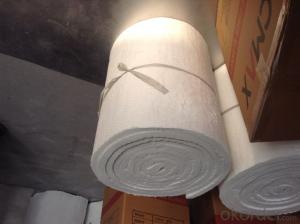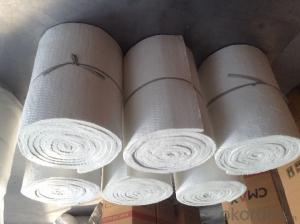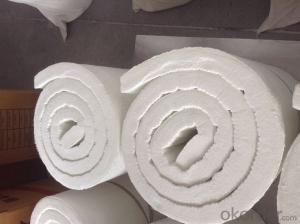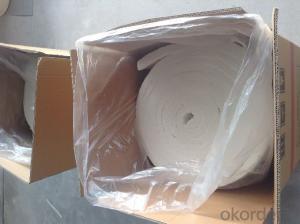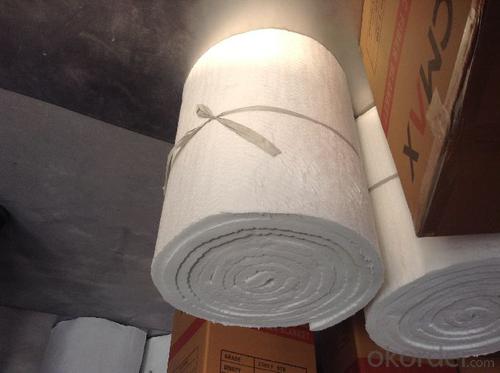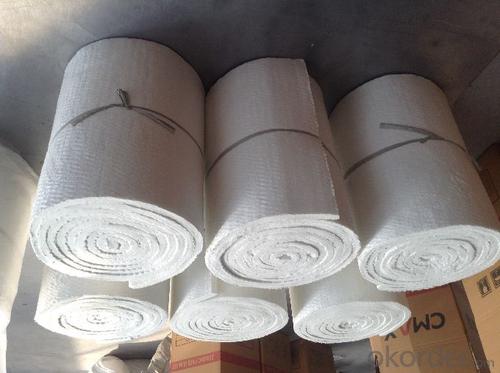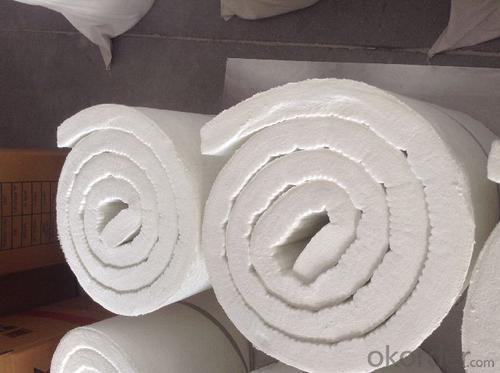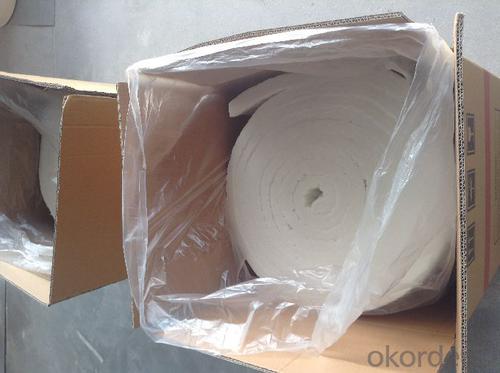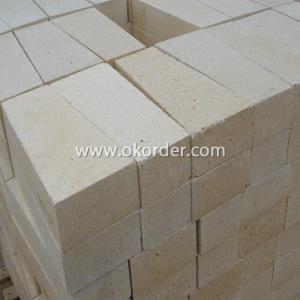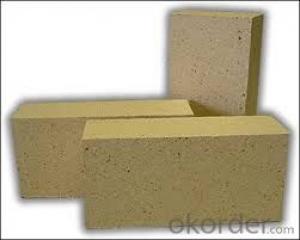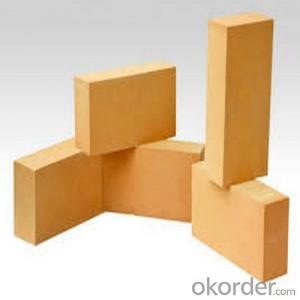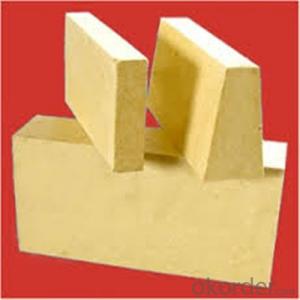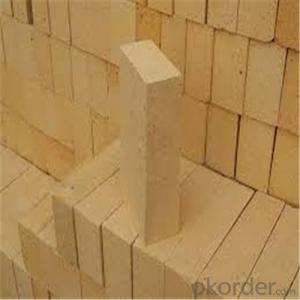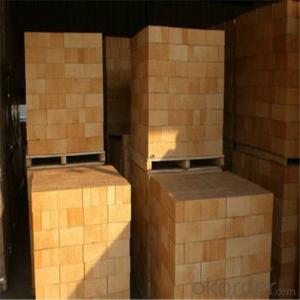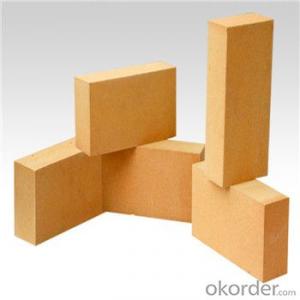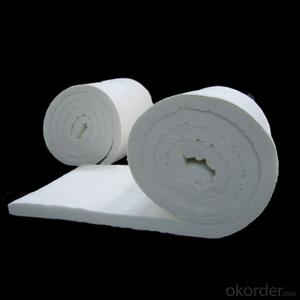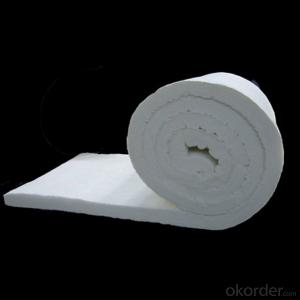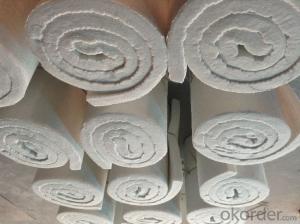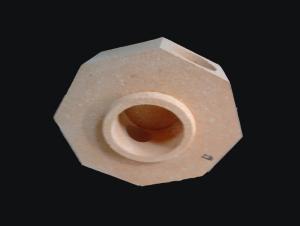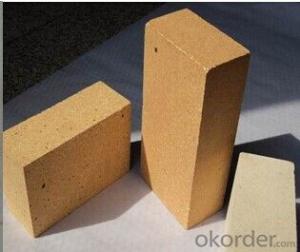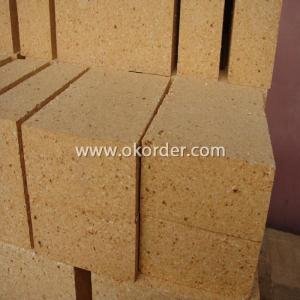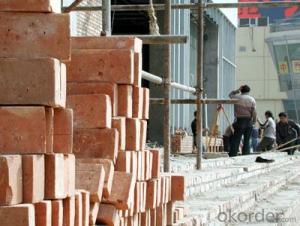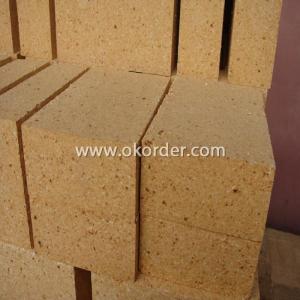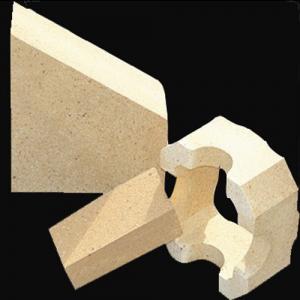Fireclay Brick Ceramic Fiber Blanket Refractory Blanket HA
- Loading Port:
- Qingdao
- Payment Terms:
- TT OR LC
- Min Order Qty:
- 225 roll
- Supply Capability:
- 31500 roll/month
OKorder Service Pledge
OKorder Financial Service
You Might Also Like
General information:
Cmax ceramic fiber blanket is made from high quality gao-ling clay, high purity alumina and silica oxides by spun or blown process. It is asbestos free. No chemical binder is added. Double-size needling provides blanket with great tensile or handling strength for easy installation. Blankets are available in various classified temperature from 1260ºC to 1430ºC.
Cmax ceramic fibre blanket is resistant to most chemicals attack except hydrofluoric phosphoric acid and high pH alkali(na2o or k2o). Its thermal and physical properties can not be affected by oil, steam and water, very good thermal insulating materials.
Advantages:
Heat reflectance
Light weight
Low thermal conductivity
Low heat storage
Flexible
Resilient to thermal stock
High tensile strength
Corrosion resistance
Easy to install
Asbestos free
Application:
Petrochemical process heater refractory fiber lining
Heat treating furnace or intermittent (shuttle) kiln hot face lining
General furnace backup insulation
Heat seals for kiln car or furnace door
Electrical insulator
High temperature acoustic
Fire protection
Non-standard sizes are available upon request.
This information, subject to change, is offered solely for your consideration. Users of our products should make their own tests to determine the suitability of each product for their particular purposes.
| TECHNIQUE DATA | |||||||
| STD | HP | HA | HZ | ||||
| CLASSIFICATION TEMPERATURE(C) | 1260 | 1260 | 1350 | 1450 | |||
| WORKING TEMPERATURE(C) | 1000 | 1050 | 1200 | 1350 | |||
| COLOR | WHITE | WHITE | WHITE | WHITE | |||
| BULK DENSITY(kg/m 3 ) | 96/128 | 96/128 | 96/128 | 96/129 | |||
| THERMAL SHRINKAGE 24HRS (Density 128kg/m 3 ) | ≤ 3 | ≤ 3 | ≤ 3.5 | ≤ 3.5 | |||
| THERMAL CONDUCTIVITY(W/m. k) (Density 128kg/m3 ) | |||||||
| 800C | 0.15 | 0.176 | 0.160 | 0.155 | |||
| 1000C | 0.170 | 0.220 | 0.180 | 0.230 | |||
| 1200C | - | - | 0.260 | 0.31 | |||
| CHEMICAL COMPOSITION(%) | |||||||
| Al2O3 | 45-46 | 45-46 | 53-55 | 38-54 | |||
| SiO2+Al2O3 | 98.5 | 99 | 99 | 82-90 | |||
| ZrO2 | - | - | - | 13-18 | |||
| Fe2O3 | ≤ 0.4 | ≤ 0.3 | ≤ 0.3 | ≤ 0.3 | |||
- Q: What kind of material is good to be laid on the kiln car, refractory brick?
- Ceramic fiber blanket
- Q: What is the material of refractory brick used in the high temperature zone of the kiln?
- The ordinary generally use clay high alumious fireclay brick. GB/T 3994-2005 insulating refractory brick. What with good material is high-grade thermal insulation refractory brick. GB/T 3995-2006, high alumina thermal insulation refractory brick , model A13, is made of aluminium oxide, A13 50U, senior heat insulatio brick B5
- Q: Are there any good improvement measures for the always collapse of the previous vaulted tunnel kiln built by refractory bricks?
- Volume shrinkage, uneven shrinkage and expansion of part, long-term high-temperature processing crystal type changes, calcium and other substances forming the refractory brick is Magnesium Oxide. Also the temperature changes quickly, and belongs to the crystal compound, silicon aluminum, sealing material's selection should be pay attention to
- Q: What are the advantages and disadvantages of clay refractory bricks?
- The clay brick refractory brick and be roughly the same, up to 1690~1730 DEG C, but the load softening temperature is 200 degrees Celsius above the low brick. Because clay bricks contain crystalline Mullite with high refractoriness, they contain nearly half of the amorphous glass phase of low melting point.In the temperature range of 0~1000 DEG C, the clay brick volume increases with temperature uniform expansion, linear expansion curve approximates a straight line, the line expansion rate is 0.6%~0.7%, about half of the brick. When the temperature reaches 1200 degrees Celsius and then continues to heat up, the volume will begin to shrink from the maximum expansion. The residual shrinkage of clay brick results in the cracking of masonry joints, which is a major drawback of clay bricks. When the temperature is above 1200 degrees, the low melting point of the clay brick gradually melts because the particles are very close to each other due to surface tension, resulting in volume shrinkage.
- Q: Are refractory bricks necessarily needed to build a kitchen stove?
- The kitchen stove is used to cook dinner, so refractory bricks are unnecessarily needed. It depends on the temperature.
- Q: What is the difference between the refractory bricks, hand-made bricks and the machine pressure bricks?
- Withstanding voltage strength is not the same, the strength of the mechine-made is higher
- Q: does 90m high reinforced concrete chimney need firebrick?
- The chimney need firebricks or casting fire or acid resisitant concrete after casting, one aim is to resist high temperature, then is to resist acid corrosion. there is a variety of models of the refractory brick , you can refer to the installation quota.
- Q: Where are clay bricks or cement bricks?
- Cement brick is the use of fly ash, cinder, coal gangue, slag, chemical residue or natural sand, sea mud etc. (more than one or several kinds of raw materials) as the main raw material, made of cement coagulant, a kind of new wall materials by high temperature calcination made called cement brick.
- Q: How to use the winding packaging machine to pack refractory bricks
- Over 150KG the most common winding machine can pack, if it is light or the goods scatter, then add capping or pre-drawn device is all right.
Send your message to us
Fireclay Brick Ceramic Fiber Blanket Refractory Blanket HA
- Loading Port:
- Qingdao
- Payment Terms:
- TT OR LC
- Min Order Qty:
- 225 roll
- Supply Capability:
- 31500 roll/month
OKorder Service Pledge
OKorder Financial Service
Similar products
Hot products
Hot Searches
Related keywords
